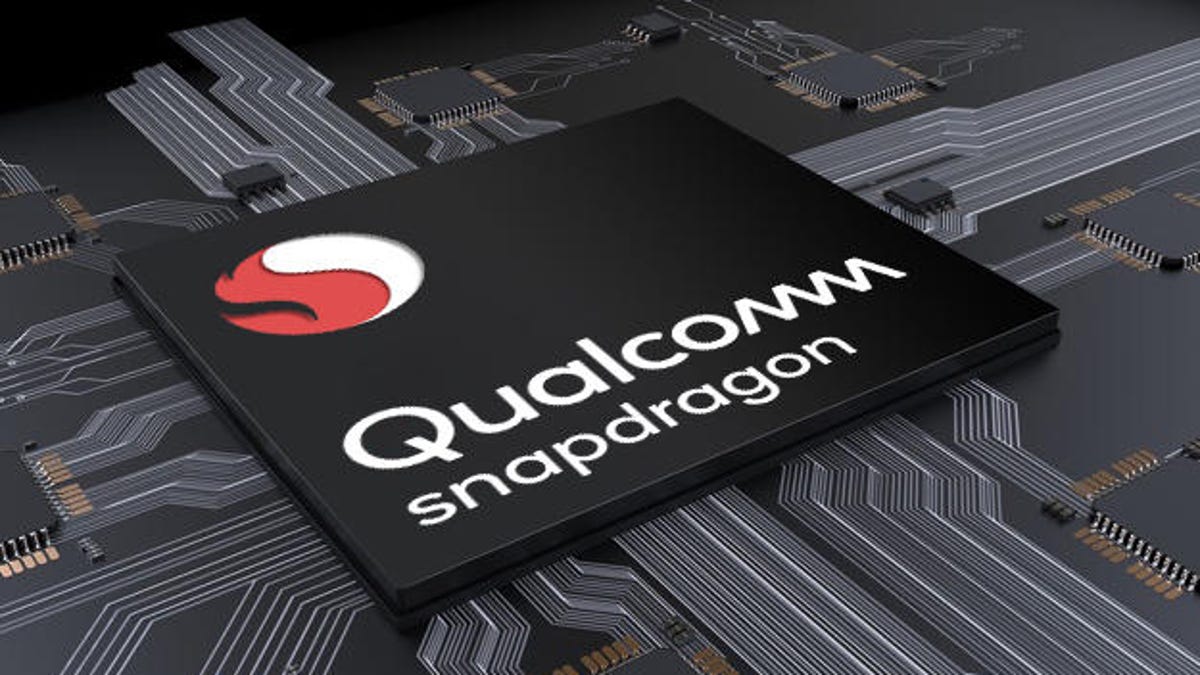Qualcomm cuts licensing fees, hopes to settle with Apple this year
In an effort to resolve its licensing disputes, the chipmaker lowers by $100 the cap on the value of handsets, which is what its royalties are based on.

Qualcomm's Snapdragon chips power many of the world's top smartphones.
Qualcomm's licensing disputes may soon come to an end -- or at least the chipmaker is doing all it can to make that happen.
Late Wednesday, the company said it's lowering the cap on royalties it charges handset makers for using its technology, and it confirmed that Samsung, one of its most important customers, pays less than it did before. On Thursday, Qualcomm CEO Steve Mollenkopf also echoed his previous comments that he hopes to reach a settlement with Apple, one of Qualcomm's biggest customers, this year.
"There will be a decision one way or the other, either through the courts, or in the way that I think everybody would prefer, in a settlement ... before the end of the year if we're lucky," Mollenkopf told CNBC.
Apple declined to comment.
Qualcomm is the world's biggest provider of mobile chips, and it created technology that's essential for connecting phones to cellular networks. The company derives a significant portion of its revenue from licensing those inventions to hundreds of device makers, with the fee based on the value of the phone, not the components. Because Qualcomm owns patents related to 3G and 4G phones, as well as other features like software, any handset maker building a device that connects to the newer networks has to pay the company a licensing fee, even if it doesn't use Qualcomm's chips.
Previously, Qualcomm capped the value of handsets, which its royalty is based on, at $500, even if a device sold for double that. But the new cap, which will be "broadly implemented" in its fiscal fourth quarter that ends in September, will be $400. That new cap would benefit partners like Apple and Samsung, which sell some of the priciest, and highest volume, phones on the market. The iPhone X, for instance, starts at $999, but Apple would pay a royalty rate equivalent to that of a $400 phone.
"This global rate is consistent with the [standard essential patent]-only licensing program we successfully established in China since 2015, which has resulted in over 120 agreements for 3G and 4G devices," Mollenkopf said Wednesday during a call with analysts. "We are now in negotiations for license extensions under the new program announced in November that include rights to our 5G patents and expect to conclude a number of agreements" in the current quarter.
Lower rates
Qualcomm's licensing practices have come under fire over the past couple of years. Apple sued the company a year ago, saying it should pay a fee based only on the value of Qualcomm's connectivity chips, not the entire device. It says Qualcomm is "effectively taxing Apple's innovation" and that Apple "shouldn't have to pay them for technology breakthroughs they have nothing to do with." Other licensees have also pushed for lower rates, and governments around the world have been investigating Qualcomm's licensing practices.
Qualcomm in November set a lower licensing rate, 3.25 percent, for its standard essential patents, which include the new 5G wireless technology. Mollenkopf said Wednesday that Samsung reached a new deal with Qualcomm for lower licensing fees than what it paid before.
He also noted that Qualcomm is in "very active" discussions with another licensee that, like Apple, has refused to pay royalty fees until new rates are established or legal suits are resolved. Qualcomm hasn't said who that handset maker is, but it's believed to be Huawei, the world's third-biggest phone company after Samsung and Apple.
Because of the lower royalty rates, as well as its new, lower licensing pact with Samsung, Qualcomm's licensing business will take a hit going forward. The company expects its licensing revenue for the current quarter to drop about $300 million sequentially, to about $950 million.
The company expects overall revenue in its June quarter to total about $5.2 billion, below Wall Street estimates of $5.28 billion.
Qualcomm "is effectively haircutting their licensing agreements," Bernstein analyst Stacy Rasgon noted. "We can't help but shake our heads. Basically Qualcomm appears to be offering 5G licenses to their customers on top of the current 3G/4G, and getting paid less for their efforts."
Still, Alex Rogers, Qualcomm's head of licensing, said during a call with analysts Wednesday that the company's not getting paid less for 5G. "The best way to think about this is building a foundation for long-term stability in" Qualcomm's licensing business, he said.
Overall, Qualcomm on Wednesday reported profits and revenue that were better than expected. Its current-quarter estimates disappointed Wall Street, though.
Tech Enabled: CNET chronicles tech's role in providing new kinds of accessibility.
Blockchain Decoded: CNET looks at the tech powering bitcoin -- and soon, too, a myriad of services that will change your life.

